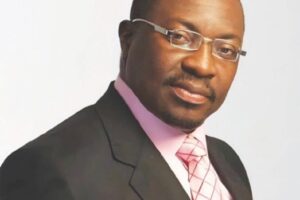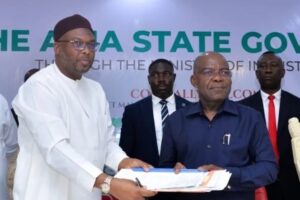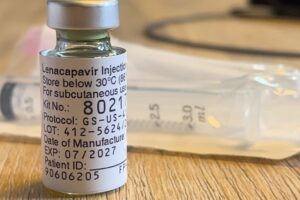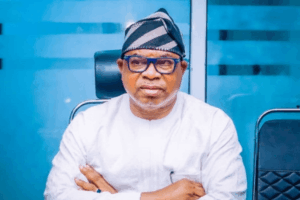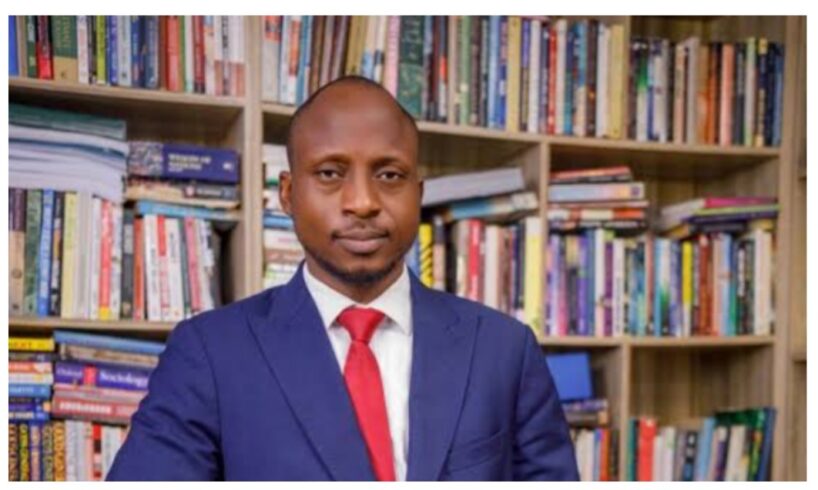
...call for calm, coordinated response to safeguard economy
Nigeria must pursue diplomacy, not confrontation, to counter the economic fallout from U.S. President Donald Trump’s recent threat of military action against the country, Paul Alaje, Chief Economist and Partner at SPM Professionals said on Tuesday.
Alaje, who is also the Convener of the upcoming TPAColloquium 2025, warned that the real danger lies in panic and economic perception rather than an actual attack. “Like COVID, the target is not your health. The target is your economy,” he said at a press conference in Abuja ahead of the event. “People should understand that perception in economics is more important than reality. No bomb has been thrown to Nigeria, no missile has been thrown, but there is a real panic mood.”
His comments come a fews days after Trump declared that Nigeria faces the risk of U.S. military intervention unless it curbed what he termed the “killing of Christians” by Islamist militants, ordering the Pentagon to “prepare for possible action” and warning that all U.S. aid could be stopped if Abuja did not act.
The threat followed Nigeria’s re-designation as a “Country of Particular Concern” with respect to religious freedom, amid decades-long security challenges involving insurgents such as Boko Haram and violent herder-farmer clashes that analysts say affect both Christians and Muslims.
Read also: Trump threatens to launch military attacks in Nigeria over Christian killings
Alaje explained that even without physical conflict, the market reaction to the U.S. president’s remarks has already triggered capital flight, dampened investment, and created anxiety across the financial sector. “Our foreign reserve is at over $42 billion, that’s a lot for a nation knowing where we are coming from,” he said. “If this situation persists, it might go down because already people are moving their money away from stocks to safer environments.”
The economist cautioned against divisive rhetoric and urged both citizens and the media to project confidence in Nigeria’s stability. “This is not the time to condemn the government,” he said. “Everyone that has the privilege to be in the media space must speak confidence into the system. When the heaven falls, it will fall on all of us.”
Alaje urged authorities to intensify diplomatic engagement with Washington and allies around the Gulf of Guinea to de-escalate tensions. “Our leadership should engage, discuss, and not wait until the threat falls on all of us,” he said. “If President Trump changes his speech today to ‘Nigeria is safe,’ you are going to see an inflow of investment more than what you’ve seen before. President Trump is, quote-unquote, the number one citizen of the world. When he speaks, the markets listen.”
He further warned that prolonged uncertainty could hurt employment, growth, and poverty reduction efforts. “It will have implications on unemployment, poverty, and almost all macroeconomic indicators,” Alaje said, stressing that diplomatic restraint is the most effective response. “Instead of going combatant, it is to adopt a diplomatic approach. People must understand that this nation comes first. For most of us, we don’t have any other alternatives.”
In her remarks, Fehintoluwa Oduekun, Chairperson of TPAColloquium 2025, echoed Alaje’s call for calm, describing Trump’s statement as a “wake-up call” for the Nigerian government to act decisively. “I believe that the government, with all the information we have from the Nigerian Stock Exchange yesterday, with that sharp drop in investment, will rise up to the challenge to address the situation urgently,” she said.
Oduekun acknowledged that while some of Trump’s concerns “are true to an extent,” they have been exaggerated in ways that could harm Nigeria’s global image and investor confidence. “We also, as Nigerians, need to speak out from our different platforms to say that, yes, it’s terrible, but not to the extreme of what it is to cause a chaotic environment for us in Nigeria,” she said.
She emphasised the need for clear communication and coordinated government response to steady the markets. “If the stock market is affected, we know that other businesses and foreign investments may be affected. So we believe that this information from the Stock Exchange is a wake-up call for the Nigerian government to act immediately,” Oduekun added.
The press conference also previewed this year’s TPAColloquium, scheduled for November 15, 2025, at the NAF Conference Centre, Abuja, under the theme “Breaking the Cycle: How Nigeria Can Beat Africa from Poverty to Prosperity.”
The event, organised by the Paul Alaje Foundation, will feature Vice President Kashim Shettima, former Kenyan anti-corruption advocate Patrick Loch Otieno Lumumba, and several governors and business leaders among its speakers.
The thematic areas for this year include: economic transformation, governance and institutions, technology and innovation, security and stability.
The colloquium will also reward and recognise three distinguished students who have submitted their entries for essay competition in three categories – secondary school, undergraduates and postgraduates on different topics around the four thematic areas.
Alaje said the colloquium’s mission is to produce policy ideas that can stabilise Nigeria’s economy and build resilience amid global volatility. “Stability does not mean prosperity, but stability can lead to prosperity,” he said.
“This is the time to protect that stability, build investor confidence, and show the world that Nigeria remains open, secure, and ready for growth.”

